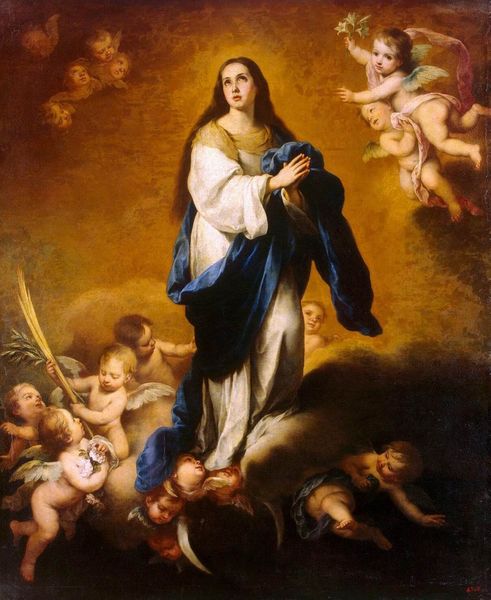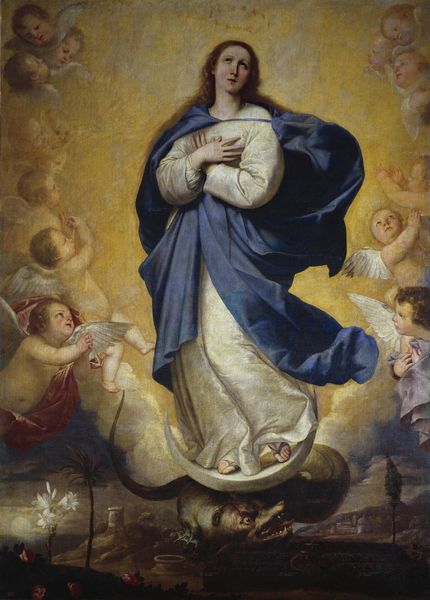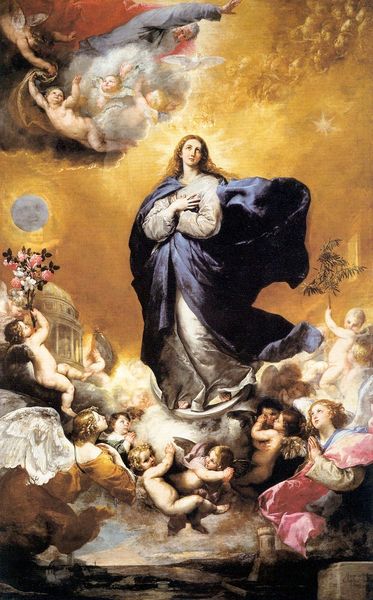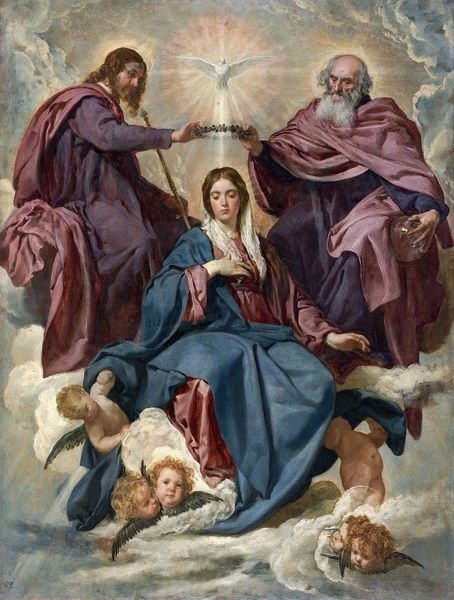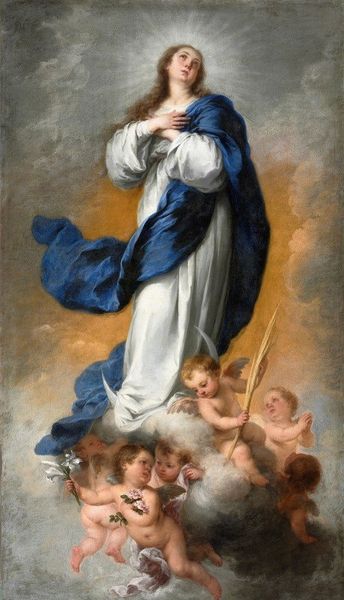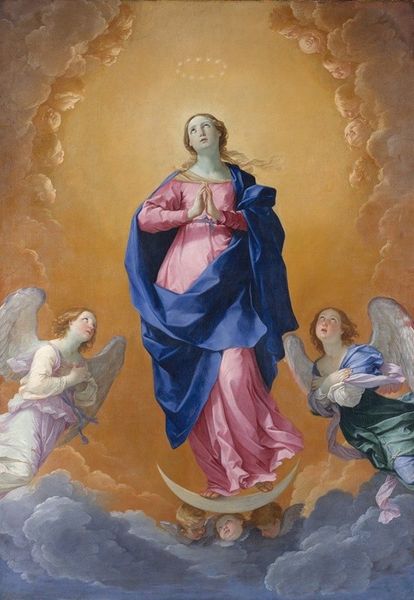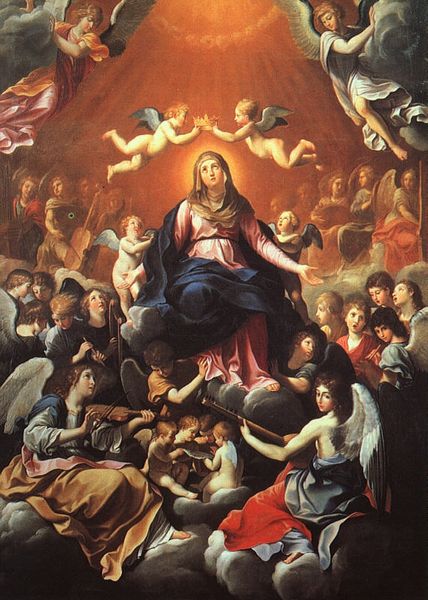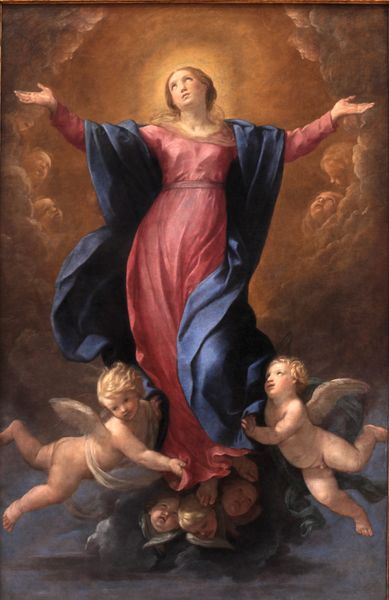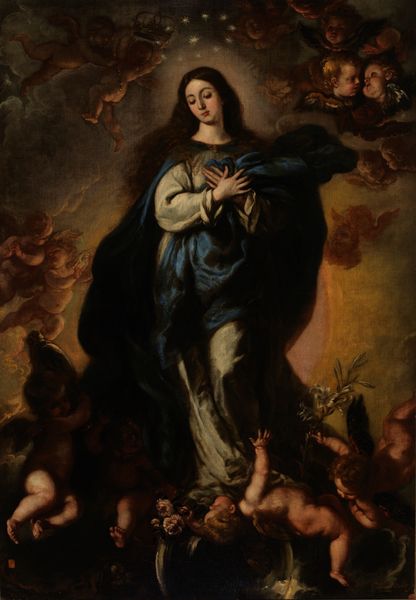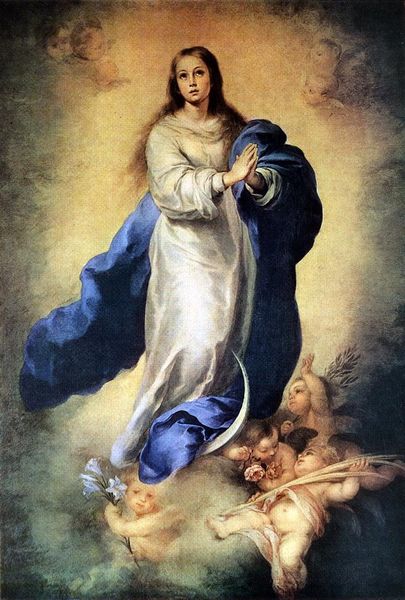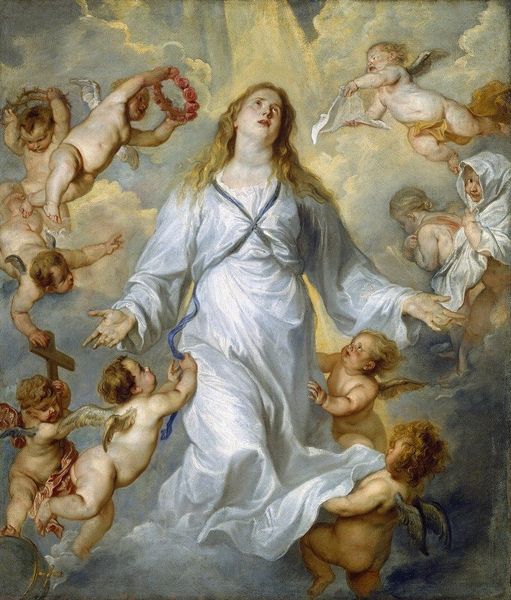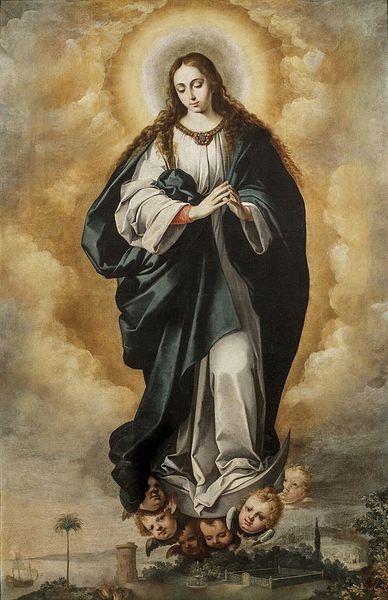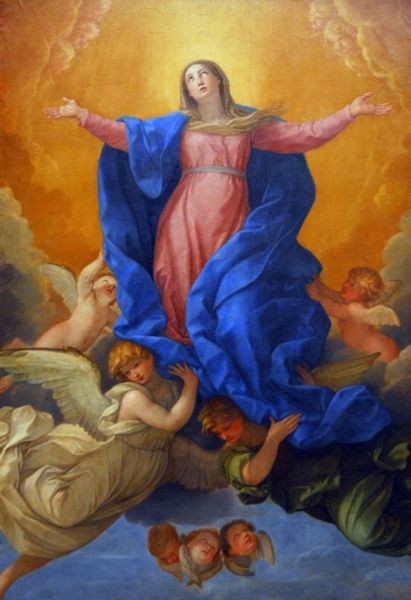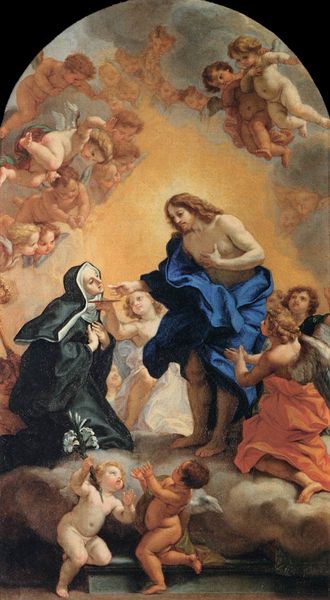
painting, oil-paint
#
portrait
#
allegory
#
baroque
#
painting
#
oil-paint
#
figuration
#
christianity
#
mythology
#
painting painterly
#
history-painting
#
italian-renaissance
#
portrait art
#
virgin-mary
#
angel
Dimensions: 195.6 x 145 cm
Copyright: Public domain
Bartolomé Estebán Murillo made this monumental oil painting on canvas, “The Assumption of the Virgin,” in seventeenth-century Spain. The artist builds the scene through layers of thinned pigment, each applied by brush, creating a sense of airy lightness. This wasn’t just a matter of technique; it was also about the cultural associations of painting at the time. Murillo was working within a well-established tradition, and sought to demonstrate artistic skill. But what can we learn by considering this expertise as a form of labor? Note the considerable effort involved in preparing pigments, layering paint, and creating the illusion of a celestial scene, which were all very time consuming. Even the canvas support represents a significant investment of resources, from growing and harvesting flax to weaving the cloth and priming its surface. Thinking about the value of the materials and the work involved in their transformation enriches our appreciation of this canvas.
Comments
No comments
Be the first to comment and join the conversation on the ultimate creative platform.
